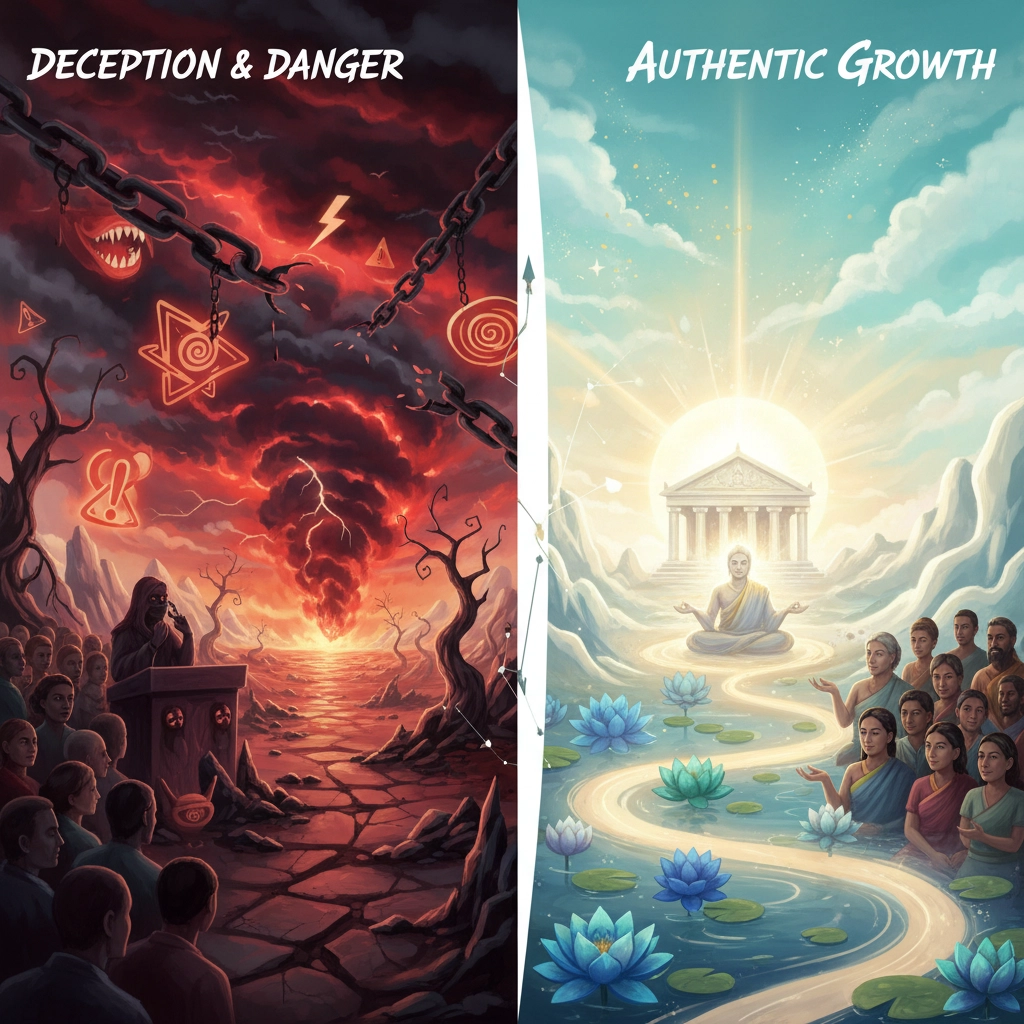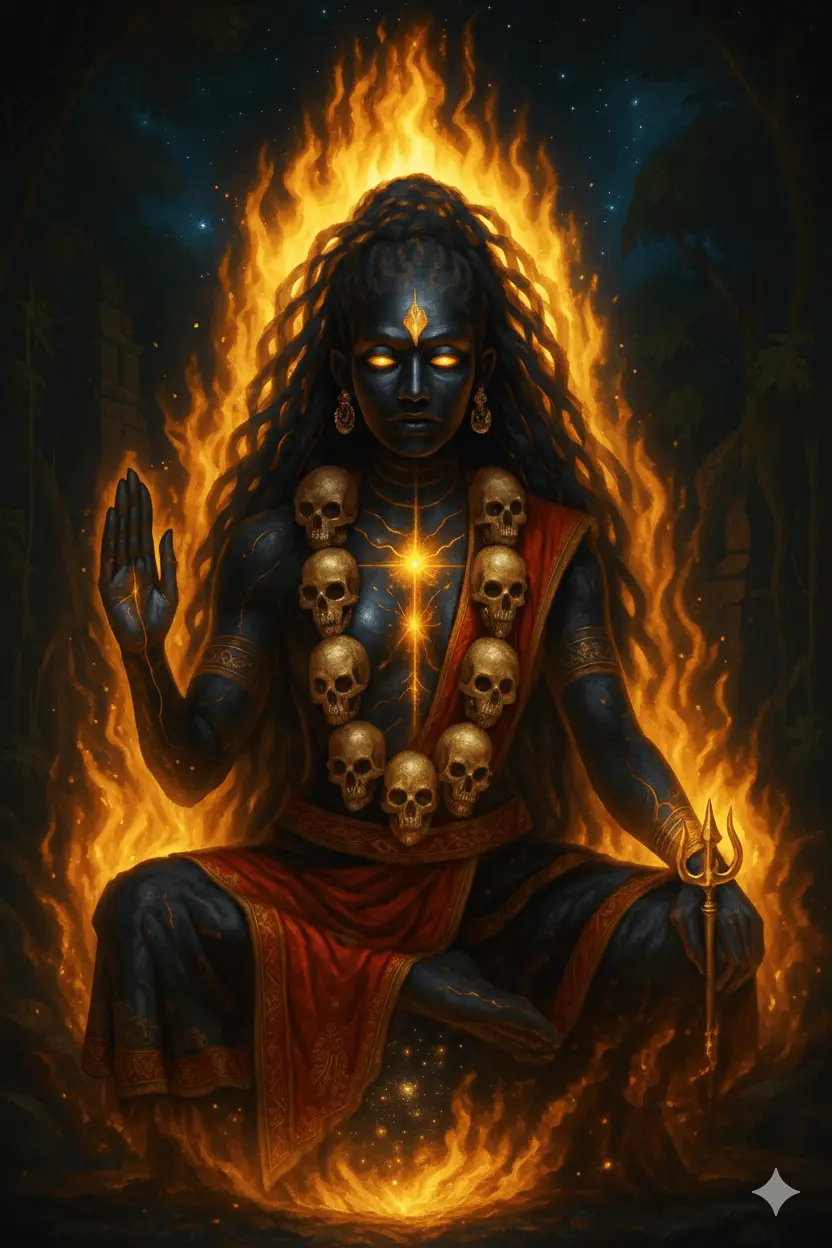Choosing a Tantra teacher isn't like picking a yoga instructor from the local studio. This decision can literally shape your spiritual journey, impact your personal safety, and determine whether you experience authentic transformation or just expensive disappointment.
With the rise of commercialized "neo-tantra" and weekend warrior teachers, finding someone legitimate has become trickier than ever. Let's break down exactly what to look for, what to avoid, and how different types of teachers compare.
The Foundation: Lineage and Training Background
A real Tantra teacher should be able to tell you their spiritual genealogy without hesitation. Who did they study with? What lineage do they come from? Which school trained them? If you get vague answers like "I'm self-taught" or "I learned from many masters," that's your first red flag.
Authentic Tantra teachers typically come from established schools with clear transmission lines. They can name their teachers, explain their training timeline, and describe the specific traditions they follow. This isn't about academic credentials: it's about spiritual authority and legitimate transmission of ancient practices.

Here's a simple test: ask them about meditation. If their practice doesn't center around meditation and spiritual development, you're probably looking at someone selling westernized "tantra" that has little to do with the real thing.
Communication Style: Your First Real Test
Before you ever step into a class, pay attention to how potential teachers communicate. This tells you everything about what working with them will be like.
Quality teachers answer questions openly and thoroughly. They make you feel comfortable discussing sensitive topics. They explain what to expect in clear terms and don't hide behind mystical language or vague promises.
Watch out for responses like "Don't worry, I've been doing this for years" when you ask specific questions about practices or safety. Real teachers understand that transparency builds trust, especially in a field where vulnerability is required.
Online Presence and Professional Reputation
A teacher's online presence reveals their commitment and credibility. Look for:
- Professional websites with detailed information about their background
- Student testimonials and reviews
- Years of established practice and teaching
- Clear descriptions of their approach and methodology
Teachers who've been around for a while typically have a digital footprint. If someone claims extensive experience but has minimal online presence, dig deeper. Ask for references from long-term students.
Ethics and Safety Standards: Non-Negotiables
This is where many teachers show their true colors. Reputable practitioners usually have published codes of ethics on their websites. They discuss consent, boundaries, and safety protocols openly.
Key questions to ask:
- Are they trauma-informed?
- How do they handle consent in group settings?
- What are their policies on touch and physical contact?
- Do they maintain appropriate teacher-student boundaries?
Quality teachers emphasize comfort and safety above all else. They work in transparent group environments and explain processes clearly. Be extremely cautious of anyone who insists on private sessions only or uses secretive methods.

Teaching Approach: Authentic vs. Commercialized
Here's where the comparison becomes crucial. Authentic Tantra teachers focus on:
- Meditation and breathwork as foundations
- Spiritual development and consciousness expansion
- Traditional practices passed down through lineages
- Long-term transformation over quick fixes
- Integration of body, mind, and spirit
Commercialized teachers often emphasize:
- Physical techniques and sexual practices
- Weekend workshops with immediate results
- Modern interpretations without traditional grounding
- Marketing language about "unleashing your sexuality"
- Expensive certification programs with minimal training
The difference is profound. One leads to genuine spiritual growth, the other to expensive disappointment.
Comparison Framework: Quality Indicators
| Aspect | High-Quality Teacher | Warning Signs |
|---|---|---|
| Background | Clear lineage, named masters, years of study | Vague training, self-taught claims |
| Communication | Open, detailed, respectful responses | Evasive, dismissive, or overly mystical |
| Online Presence | Professional, established, testimonials | Minimal presence, no student feedback |
| Ethics | Published guidelines, clear boundaries | No ethical standards mentioned |
| Approach | Meditation-centered, holistic | Quick-fix promises, primarily physical |
| Environment | Group settings, transparent processes | Secretive methods, private-only sessions |
Red Flags You Cannot Ignore
Some warning signs should end your search immediately:
- Teachers who won't answer direct questions about their training
- Anyone promising rapid sexual awakening or relationship fixes
- Practitioners who insist on private sessions for beginners
- Teachers who mix roles (becoming romantic partners with students)
- Anyone who dismisses the importance of meditation in Tantra
- Instructors with no clear ethical guidelines
- Teachers who pressure you into advanced practices quickly
Trust your gut. If something feels off, it probably is.

Choosing Based on Your Needs
Complete Beginners: Start with teachers who emphasize foundations: meditation, breathwork, and basic energy awareness. Avoid anyone pushing advanced practices or promising quick transformations.
Couples Seeking Connection: Look for teachers experienced in relationship dynamics who can guide both partners safely. Ensure they understand consent and communication within partnerships.
Serious Spiritual Seekers: Focus on lineage holders with deep traditional training. Seek teachers who can provide authentic transmission and have studied under recognized masters.
Safety-Conscious Students: Prioritize teachers with trauma-informed training, published ethics codes, and transparent group-based environments. Don't compromise on safety for any other factor.
The Personal Resonance Factor
Beyond all the logical criteria, there's something intangible about finding the right teacher. Often a simple photo, video, or conversation can trigger a deep sense of knowing. Since Tantra involves energy transmission, your teacher's embodiment matters enormously.
Pay attention to how you feel around them. Do they inspire trust? Do their words resonate with your inner truth? Does their presence feel grounded and authentic?
This intuitive element shouldn't override safety concerns, but when combined with solid credentials, it's often the deciding factor.
Making Your Final Decision
Once you've evaluated potential teachers across these dimensions, trust both your research and your intuition. The right teacher will check the practical boxes while also feeling energetically aligned with your path.
Remember that authentic Tantra is a gradual journey requiring patience and dedication. Anyone promising instant results or easy transformations is selling something other than traditional Tantra.
Take time to research thoroughly, ask detailed questions, and don't rush the decision. Your spiritual growth and personal safety depend on choosing wisely. The right teacher will support both your transformation and your wellbeing throughout the journey.
The investment in finding quality guidance pays dividends for years to come. Choose someone who embodies the depth and authenticity you seek to develop in your own practice.



